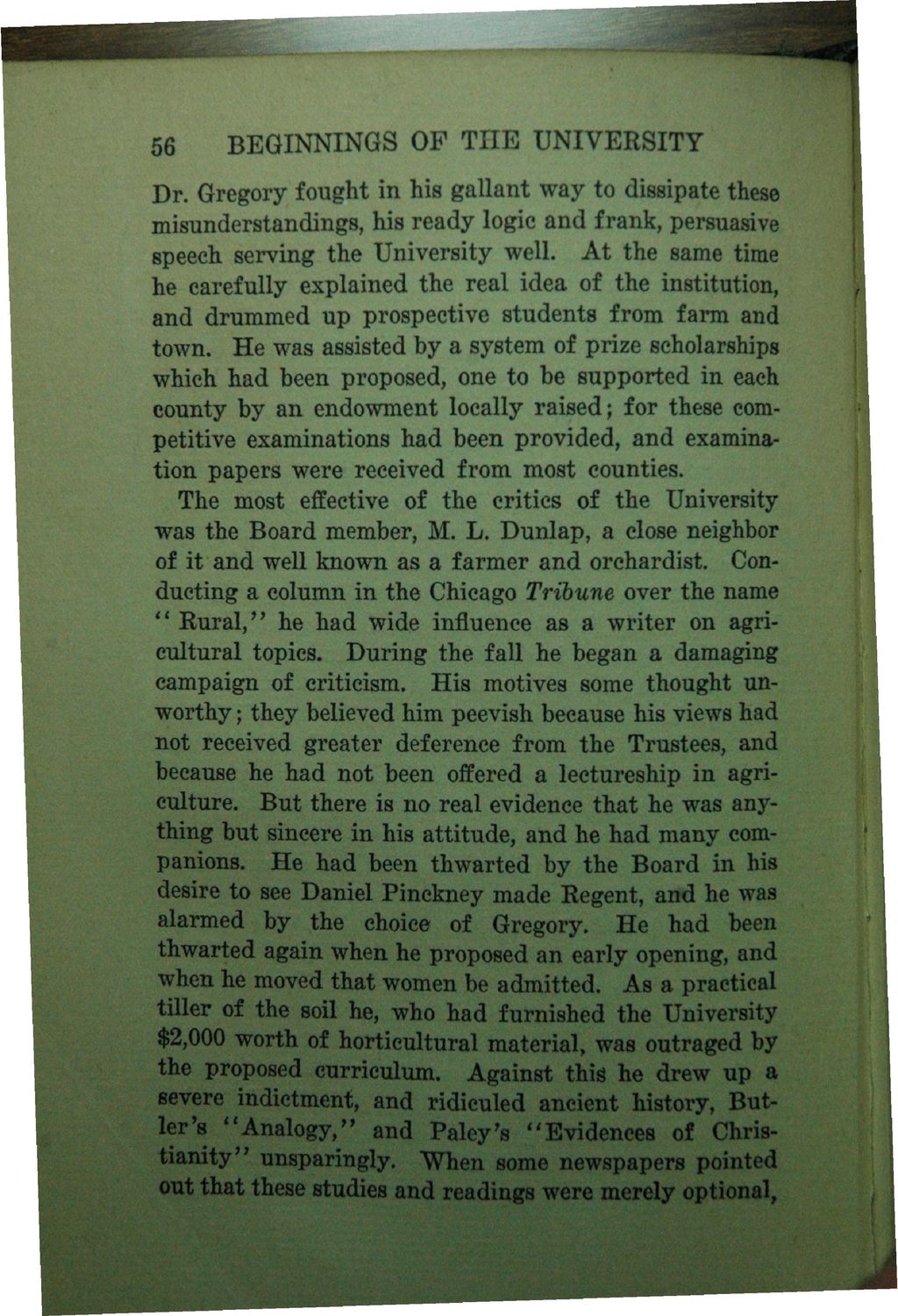| |
| |
Caption: Book - History of the University (Nevins)
This is a reduced-resolution page image for fast online browsing.

EXTRACTED TEXT FROM PAGE:
56 BEGINNINGS OF THE UNIVERSITY Dr. Gregory fought in his gallant way to dissipate these misunderstandings, his ready logic and frank, persuasive speech serving the University well. At the same time he carefully explained the real idea of the institution, and drummed up prospective students from farm and town. He was assisted by a system of prize scholarships which had been proposed, one to be supported in each county by an endowment locally raised; for these competitive examinations had been provided, and examination papers were received from most counties. The most effective of the critics of the University was the Board member, M. L. Dunlap, a close neighbor of it and well known as a farmer and orchardist. Conducting a column in the Chicago Tribune over the name " Rural," he had wide influence as a writer on agricultural topics. During the fall he began a damaging campaign of criticism. His motives some thought unworthy; they believed him peevish because his views had not received greater deference from the Trustees, and because he had not been offered a lectureship in agriculture. But there is no real evidence that he was anything but sincere in his attitude, and he had many companions. He had been thwarted by the Board in his desire to see Daniel Pinckney made Regent, and he was alarmed by the choice of Gregory. He had been thwarted again when he proposed an early opening, and when he moved that women be admitted. As a practical tiller of the soil he, who had furnished the University $2,000 worth of horticultural material, was outraged by the proposed curriculum. Against this he drew up a severe indictment, and ridiculed ancient history, Butler's "Analogy," and Paley's "Evidences of Christianity j unsparingly. "When some newspapers pointed out that these studies and readings were merely optional,
| |